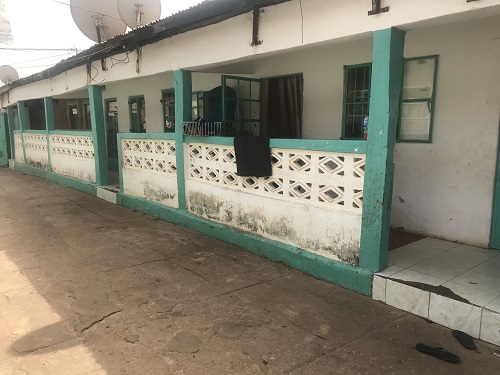
Feb 4, 2022 4:46 PM | Article By: Adama Camara

A rented property in the Greater Banjul Area
The frequency at which the property owners (landlords) increase their rent for accommodations has been a cause for concern for poor tenants in The Gambia.
Many believe that the involvement of intermediaries (middlemen or agents) who are known as the so-called house agents are responsible for the situation as they set the price for the house owners, from which they get a share.
Most of the people renting in the urban areas are on a very low earning at their workplaces due to poor salary scales; thus are living from hand-to-mouth.
The role of the agents in the rental business is not only making the price expensive, but the conditions they lay down make it beyond the reach of the poor who are consequently denied from having a dignified living.
Fatou Sambo, a mother, testified to this. She disclosed that tenants are now often required to make an advanced payment of six months before accessing a house; while a typical two-room and parlour, nowadays costs tenants D4, 500 per month.
“I will work for a whole day and end up paying it for rent. All my earnings stop at rent. Sometimes, I usually eat lunch from my neighbours because I can’t afford to cook due to the pressure of rent,” she said.
She wants the government to take a bold step concerning rent because it is not reasonable, as the other necessities such as feeding, clothing, education, health and other social services must also be taken care of by tenants, especially the poor.
“It will really help if this issue is tackled because now landlords are making a lot of money, more than they spent on building because of the high cost of rent they are charging. The rent keeps on increasing. If this continues, I will end up living in the streets with my family,” she stressed.
She also noted that property owners sometimes serve tenants with notices to leave within a very short period because the tenant fails to pay just one- or two-months’ rent. This is against the Rent Act 2014, which specifies, “a landlord or tenant may terminate a tenancy by notice in writing, specifying the date at which the tenancy is to come to an end. In the case of a yearly tenancy, the notice is given not less than three months.”
Another tenant, Ousman Sallah, explained the difficulties he faces from expensive house rent coupled with the harsh attitude of some property owners. According to him, to get a house in the Greater Banjul Area is difficult. He currently pays D3, 500 for 2 rooms and a parlour house, which has poor roofing, and the property owner refused to renovate it.
“I am a single father of three. My wife passed away and I lost my job recently. Now I am a donkey cart operator but my landlord has no understanding at all. I owe him six months’ rent, but he is making things hard for me. Sometimes, I would find him locked my door, so I would beg him to give me some time, because I am a single parent, as I have to pay for my children’s school fees and also have to feed them, which is not easy. He recently increased the rent to D4, 500 without giving me prior notice,” he explained.
The single father urged the government to take concrete action to address the rental issues in the country, at least by providing or implementing laws that restrict the powers of the property owners.
Property owners react
“It is not that I am heartless or so, but I am a businessperson, and I get my earnings from the money I collect from house rent,'' said Abdoulie Mbaye, a property owner who has been into renting houses for the past six years.
He complained that some tenants would be owing house rents unbearably long, and when approached to pay, they would react ‘rudely’ to them (property owner) who are simply asking for their money.
According to Mbaye, property owners are responsible for paying rent taxes, and argued that the government should lower the imposed taxes to enable them also to lower the rent tenants are asked to pay.
Ousainou Faye, also a property owner, says building materials are expensive in addition to the construction of the building, which makes them to fix rent at prices through which they can recover their expenditures.
He also complained that tenants would sometimes exit while owing property owners, as he justifies the issue of advanced payments, which they usually ask for six months payments.
Faye maintains that the livelihood is stressful for everyone and it is the duty of the government to create balance for people by reducing cost and taxes on building materials.
Government’s promise
The ruling National People’s Party (NPP) led by President Adama Barrow has promised that his administration shall engage in and promote sustained schemes for holistic rural and urban development, while affordable and livable housing schemes shall be a priority to ensure and improve the wellbeing of all Gambian citizens.
Expert opinion
Ebrahima Touray, an economist, said the high cost of rent affects the tenants in many ways, including making them feel insecure and unstable, if they do not have the means to pay for rents.
He added that that makes it so hard for them (tenants) to address other needs of their families such as providing basic needs of health, feeding, and education as they struggle with poor living standards.
“The solution to all these problems is the municipality should set regulations for rent and implement it because rent control will help,” Touray suggested.
Comments (0)
77 Likes
Leave your thought here
Your email address will not be published. Required fields are marked *